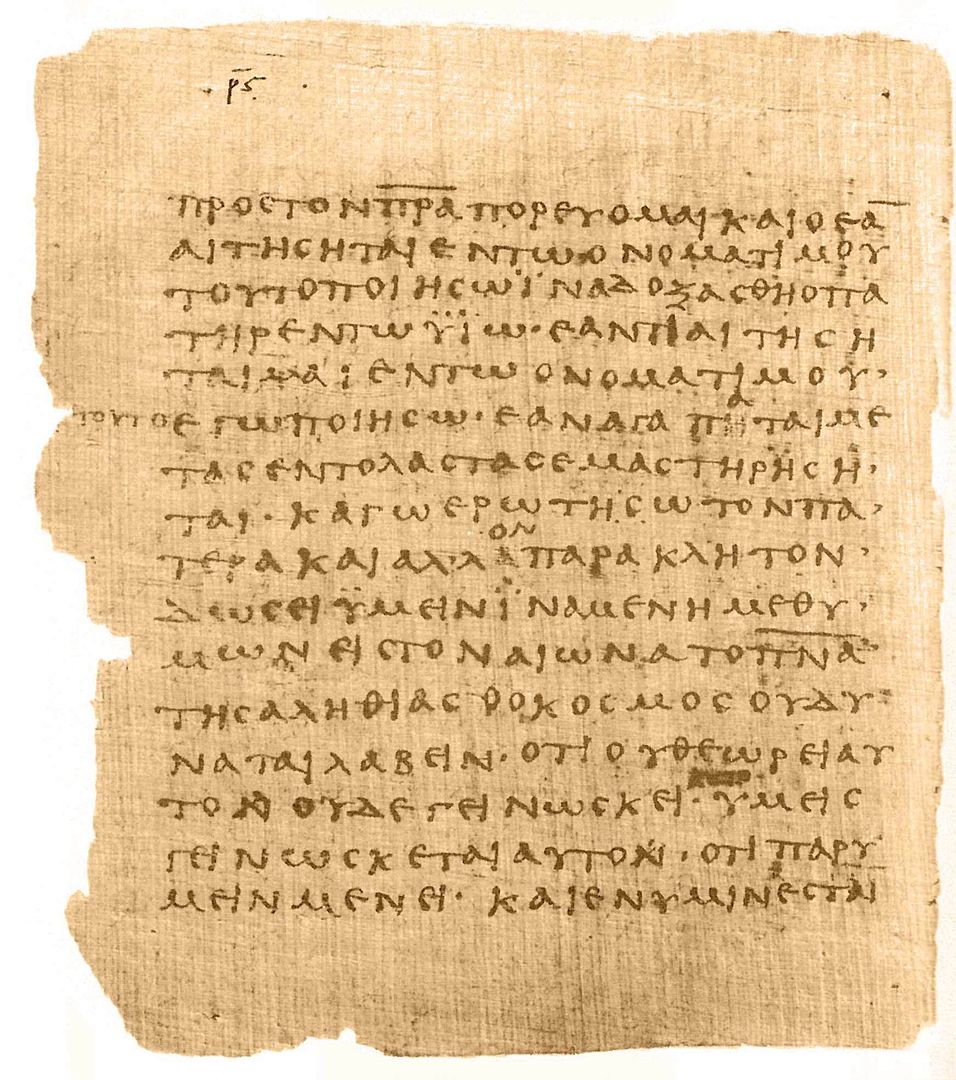Here is the way John 14:17, as it appears in Papyrus 66 (in modern Greek characters). This manuscript was produced about 150 A.D.
το πνα της αληθειας ο ο κοσμος ου δυναται λαβειν οτι ου θεωρει αυτον ουδε γεινωσκεται υμεις γεινωσκεται αυτον οτι παρ υμειν και ενυμιν εσται
The “πνα” was overlined instead of underlined. It was an abbreviation for “πνευμα” (spirit). The verse tells us that the world system (ο κοσμος) is not able to receive or perceive him (“αυτον” is a masculine pronoun) or understand. You understand him (“αυτον” again) because he remains beside you and will be in you.
However, somebody, made some changes in the text, probably somebody in the 4th or 5th century.
το πνα της αληθειας ο ο κοσμος ου δυναται λαβειν οτι ου θεωρει αυτον(1) ουδε γεινωσκεται (2) υμεις γεινωσκεται αυτον(3) οτι παρ υμειν και ενυμιν εσται
(1),(3) “αυτον” was changed to “αυτο” by deleting “ν” with a dot above and a slash through the letter.
(2) “αυτο” was added super linearly.
By changing “αυτον”(masculine) to “αυτο” (neuter), the tamperer may have thought he was simply correcting the grammar, by making the pronoun agree in gender with the neuter noun “πνευμα”, Or he may have had a theological reason for doing so — namely, to avoid giving personality to the Holy Spirit.
The copyist who originally wrote Papyrus 66 may have simply been sloppy in copying. He may have written the masculine “αυτον” by mistake, or John the apostle himself may have actually written “αυτον” in order to indicate that the Holy Spirit was personal, and not a mere force.
Any thoughts?

 What I find equally amazing is that people such as yourself can figure out what it says! This is very valuable knowledge that I wish I had. However, I do have a collection of different versions of the bible, all in English, that I use to make comparisons in the translations. This can be mind boggling. As you pointed out, changing a simple word can leave us with a different impression. When it comes to he, she or it, then it gets even more confusing. For example, a table would be an “it”, indicating that it is an inanimate object, yet we name our vehicles and refer to them as he or a she, indicating that they are special to us. We name hurricanes as if they are persons (some are masculine, some are feminine), any other storm is simply an “it”.This also occurs in the writings of the bible.How do we keep it all straight?
What I find equally amazing is that people such as yourself can figure out what it says! This is very valuable knowledge that I wish I had. However, I do have a collection of different versions of the bible, all in English, that I use to make comparisons in the translations. This can be mind boggling. As you pointed out, changing a simple word can leave us with a different impression. When it comes to he, she or it, then it gets even more confusing. For example, a table would be an “it”, indicating that it is an inanimate object, yet we name our vehicles and refer to them as he or a she, indicating that they are special to us. We name hurricanes as if they are persons (some are masculine, some are feminine), any other storm is simply an “it”.This also occurs in the writings of the bible.How do we keep it all straight? 